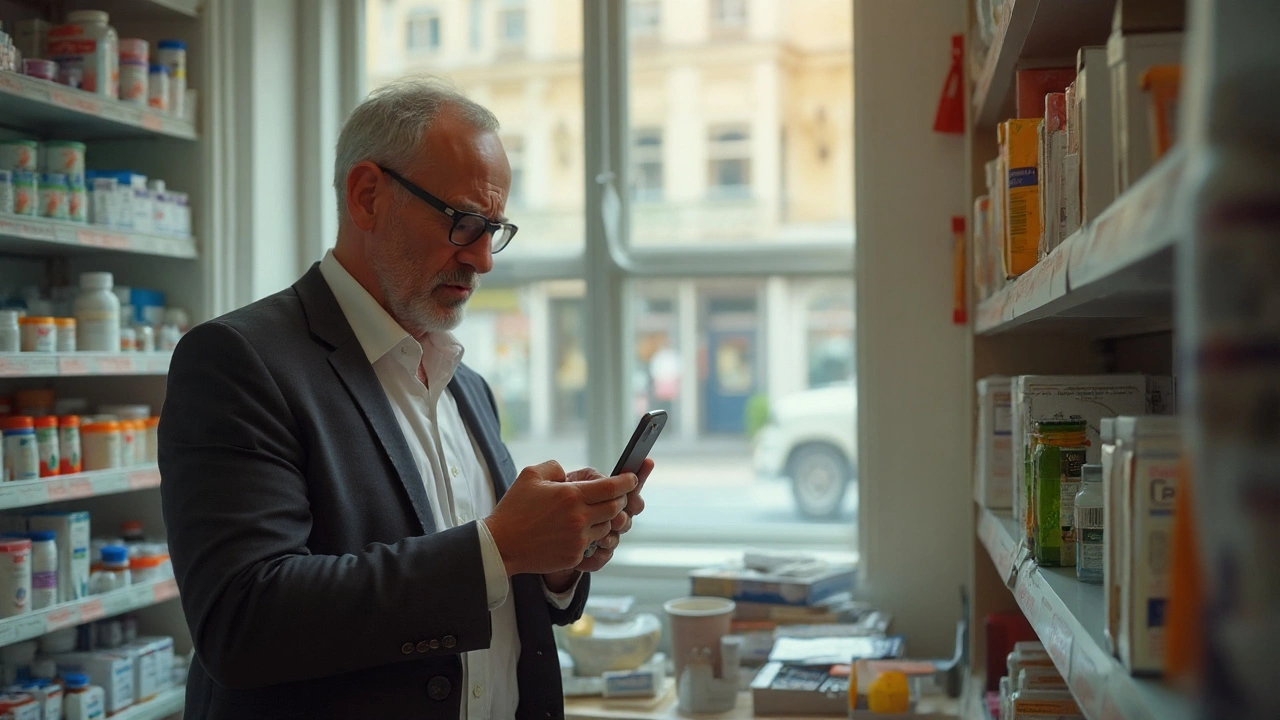Pharmacy Savings Tips – Cut Your Prescription Costs Today
If you’ve ever looked at a medicine bill and felt the sting, you’re not alone. Most people pay far more than they have to because they don’t know about the simple tricks that can shave dozens—or even hundreds—off each prescription.
Use Free Discount Apps and Websites
Apps like GoodRx, Blink Health, and RxSaver let you compare prices at nearby pharmacies in seconds. Just type the drug name, select your dosage, and the app shows a list of coupons you can print or load to your phone. Most of these offers are free; you don’t need any membership fee.
When you walk into the pharmacy, hand the coupon to the pharmacist before they pull up the prescription. In many cases the discount is applied right away, and you’ll see the lower price on the receipt.
Ask Your Doctor for Cheaper Alternatives
Never assume the brand name drug is your only option. Ask if a generic version exists—generics are required to have the same strength and effect but cost 70% less on average. If you need a specific formulation, see whether a different manufacturer offers a lower price.
Doctors can also write prescriptions for a 90‑day supply instead of a monthly refill. Most insurance plans give a better per‑pill rate when you pick up three months at once.
Check Your Insurance Plan Details
Insurance formularies change every year. Log into your portal and review the current list of covered drugs. If a medication moves to a higher tier, look for an alternative that stays in a lower tier to avoid extra co‑pays.
Some plans also offer mail‑order options that are cheaper than picking up the pill at a brick‑and‑mortar store. Compare both methods before you decide where to fill your script.
Take Advantage of Pharmacy Loyalty Programs
Major chains such as CVS, Walgreens, and Walmart have rewards programs that give points or cash back on every purchase. Sign up for free, then use the accumulated points toward future prescriptions. Even small discounts add up over time.
If you shop at a local independent pharmacy, ask about any discount cards they offer. Many community pharmacies run their own coupon systems that aren’t advertised online.
Combine Coupons with Insurance
In some states, you can stack a manufacturer’s coupon on top of your insurance co‑pay. The trick is to present both the insurer card and the coupon at checkout. Call the pharmacy ahead of time to confirm they accept stacking; it varies by location.
If you’re unsure whether a coupon works with your plan, call the drug’s customer service line. They can tell you which coupons are eligible for insurance users.
Use Patient Assistance Programs
For expensive brand‑name drugs, manufacturers often run patient assistance programs that provide free or heavily discounted medication to qualifying patients. Eligibility usually depends on income level, lack of insurance, or specific medical conditions.
Visit the drug’s official website and look for a “Patient Assistance” link. Fill out the short form—most applications are approved within two weeks.
Shop Smart at Different Pharmacies
Prices can vary widely between chains, independents, and online pharmacies. Use price‑checking tools to compare costs before you fill a script. Even if a pharmacy is farther away, the savings might outweigh the extra travel time.
When ordering online, make sure the site requires a valid prescription and displays a physical address and phone number. Trustworthy sites are licensed by state boards and often carry verification badges.
Stay Organized
Keep a running list of your medications, dosages, and any coupons you have saved. A simple spreadsheet or note app helps you avoid missing out on new discounts when a coupon expires.
By combining these strategies—discount apps, generic swaps, insurance checks, loyalty rewards, and patient assistance—you can dramatically lower your pharmacy bills without compromising care.
Start with one tip today: download a free discount app and see how much you could save on your next refill. Your wallet will thank you.
PBM Reform and Prescription Coupon Apps: What New Laws Mean for Your Wallet
Prescription savings apps face new hurdles as proposed PBM reforms shake up drug pricing. Learn how upcoming policy changes will affect your wallet and options.
Keep Reading
